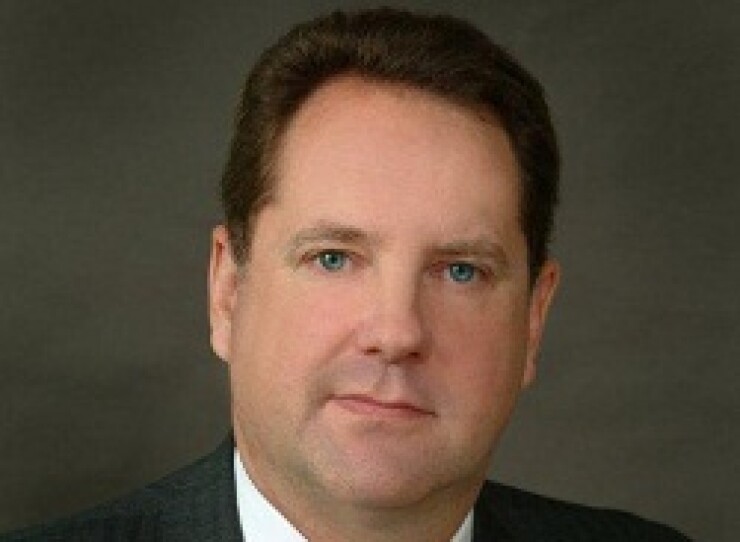
Nobody said it would be easy to build up a multifamily office, much less one with national aspirations, as the Forbes Family Trust is finding out -- the hard way.
Last summer Forbes hoped to have "a national RIA multifamily office brand with the Forbes name," said chief executive Scott Gregorchuk, "targeting the right advisors and investment advisory firms to join our effort.”
One year later, Forbes' growth plans have been stymied by a difficult market for acquiring firms.
Despite talking with at least half a dozen wealth management firms, Forbes was not able to complete an acquisition. "It's hard to get deals done," Gregorchuk says. "We underestimated the time and effort it would take, and thought there maybe would be more flexibility in terms of valuation and price."
Deal structures also proved frustrating.
"We found the devil is in the details," Gregorchuk says. "Even if we agreed on a financial arrangement, there were issues such as the status of principals once a firm was acquired, the relationship between clients and principals and how concentrated or portable clients were."
GOING ORGANIC
Without finding a suitable advisory firm for the right price as well as an appropriate cultural fit, Forbes is shifting its focus to organic growth.
Last year, Forbes had around $1.5 billion in assets; in its spring ADV filings the multifamily office reported $1.3 billion in assets under management and just under $2 billion in total assets under advisement. At the end of August, Forbes had approximately $2.5 billion in assets under advisement, according to Gregorchuk.
The MFO's advisory staff has remained constant at around 15 since last year, while the number of clients Forbes serves has increased by 10 to 45, with an average asset size of around $55 million, Gregorchuk says.
Clients are spread out around the country - and Europe - but for now Forbes is still servicing them from its two offices in New York and suburban Philadelphia. While the firm has no immediate plans to open new offices, Gregorchuk says, it would consider doing so if "the right family group" wanted nearby "feet on the ground."
Forbes is also exploring "strategic joint ventures" with overseas firms who want exposure to the U.S. family office market, Gregorchuk says.
TOUGH WAY TO GO
But growing a multifamily office organically is a very tough way to go, say industry experts.
"It's a small and fragmented market, made up of around 15,000 people who don't like paying for anything and are very demanding," says industry consultant Joe Reilly, the former president the Family Office Association in Greenwich, Conn. "The fastest way to grow is to acquire other firms. If I were trying to grow a MFO organically I would hire a top tier investment team, but those people are very expensive."
Capital and founding family support are also major issues for expansion-minded multifamily offices.
"Multifamily offices face increasing levels of client complexity that systematically erode profitability," says industry consultant Jamie McLaughlin. "Capital sources are critical for success but limited or unattractive to principals. Most MFO capital structures are weak and concentrated."
Family and board support "with readily available capital" is critical for growth, says former Silver Bridge Advisors chief executive Steve Prostano, who now heads his own consulting firm.
In 2011 the Forbes family partnered with LGL Partners, a Philadelphia-based multifamily office, founded by the Lenfest family, which made its fortune in the cable television business, eventually selling to Comcast Corp.
After a round of initial investments, Forbes Family Trust hasn't received any capital from the two families, Gregorchuk says. But the MFO "generates enough cash flow" internally and doesn't need the money, he adds. And if the firm does require additional capital, Gregorchuk says he's confident it can be raised from private equity companies and regional banks.
POSITIVE SIGNS
Gregorchuk says he's also heartened by what he sees as a trend away from private banks by ultrahigh-net-worth clients.
"We're finding that prospective clients are more interested in the service and objectivity they can get from an independent firm," he explains. "We believe that will be a long-term trend."
Forbes is targeting clients with more than $20 million in assets but less than $100 million, Gregorchuk says. "We can do a lot more for them if they have under $100 million," he adds. "Families with more than $100 million tend to do more in house."
While Forbes Family Trust hasn't leveraged their familiar brand name by advertising, the firm has written advertorials and thought leadership for Forbes magazine. The most effective use of the Forbes name to date has been by word of mouth, according to Gregorchuk.
Nor is Forbes Family Trust giving up on acquisitions.
Buyers who are willing to wait may be rewarded in the long term, Gregorchuk predicts.
"All firms tend to look better in a bull market," he notes. "A more challenging market can make a difference."
Read more:





